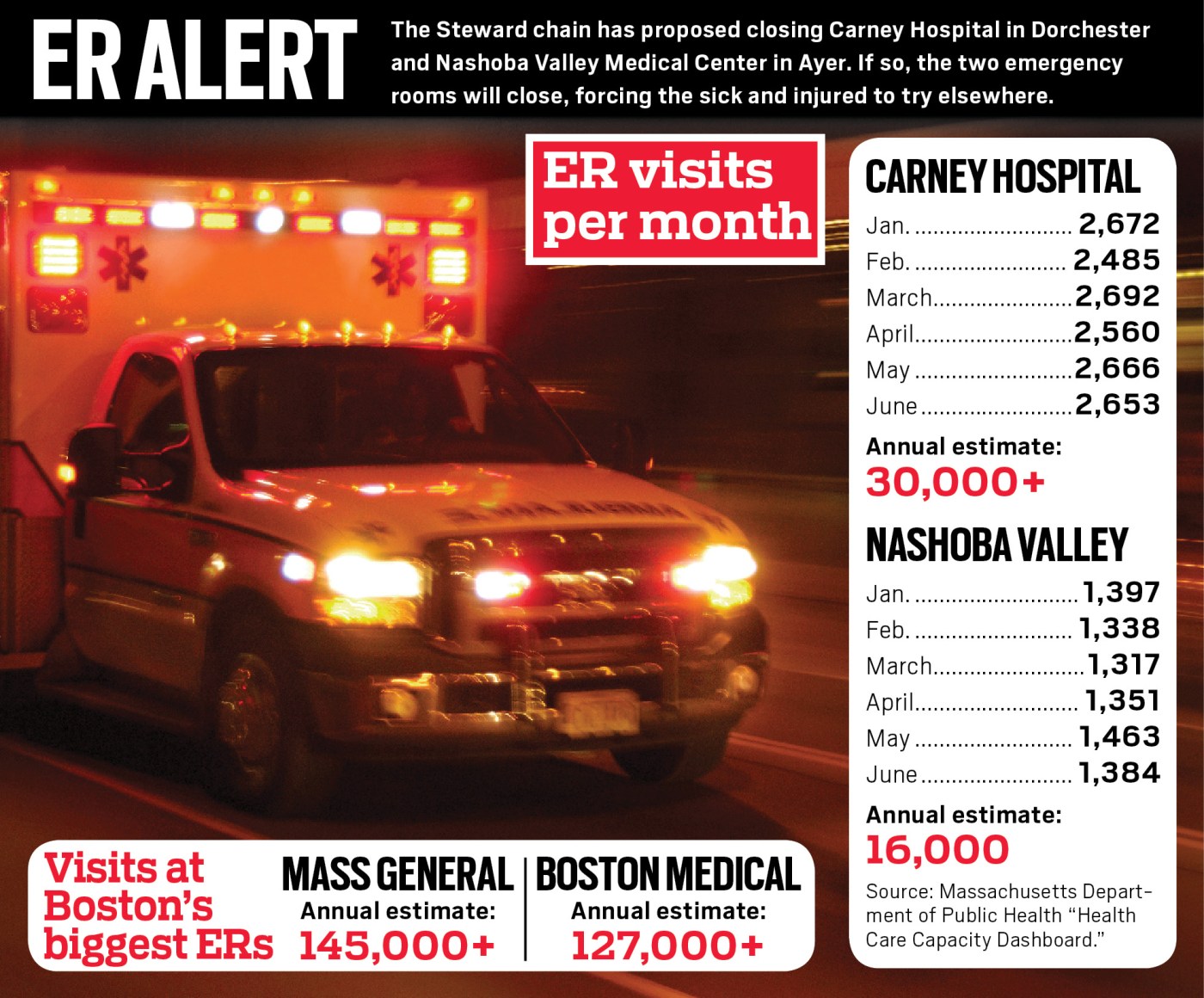
Boston City councilors, state senator seek emergency declaration over Steward closures
The Boston City Council has been offered resolution urging the city’s Public Health Commission to declare a state of emergency exists due to the potential closure of Carney Hospital and to seize the hospital property if that’s what is necessary to keep the facility open.
City Councilors Ed Flynn and John FitzGerald, on Monday, authored the resolution to prevent the catastrophic consequences they say will occur if Steward Health Care is allowed to go through with their plan to close Carney before the end of summer. The Council could consider the plan during their next meeting, on August 7.
According to the councilors, closing Carney hospital would “would pose significant risk to the health and well being to the communities served these facilities, particularly a significant population from communities of color and economically disadvantaged residents disproportionately impacted by service closures.”
Closing a hospital in Dorchester, they say, wouldn’t only affect the people of that neighborhood, but would be felt across the broader Boston region.
“The loss of Carney Hospital will also compromise and delay access to care for all communities in Greater Boston, as already overcrowded facilities will be forced to absorb this population of patients,” they wrote.
If adopted, the resolution would “urge” the city and the Boston Public Health Commission to “declare a public health emergency in relation to the closure of Carney Hospital, and take all possible steps necessary to preserve the operations of Carney Hospital.”
In the case that doesn’t help the situation, and no bidder ever comes forward to buy Carney, the city should, according to the resolution, “seize the property by eminent domain and to continue to operate the facility until a permanent operator is found.”
It’s unclear how much traction such a maneuver might gain. Mayor Michelle Wu, speaking after a press conference on Monday, indicated there is little the city can do about Carney while its owners are in the midst of bankruptcy proceedings.
Gov. Maura Healey had a similar message for reporters, saying there is nothing she can do to prevent Steward from shuttering Carney Hospital, Nashoba Valley Medical Center, or any other facility, if that’s their plan.
“It’s Steward’s decision to close these hospitals, there’s nothing that the state can do, that I can do, that I have the power to do, to keep that from happening,” Healey said. “But I’ve also said from the beginning that we are focused on health care.”
“And I’ll say this: We call on Steward right now, who has within its power the ability to work with us on a deal that would save those five hospitals, to step up and act,” Healey said. “And I call on their investment bankers to do what is right and step up and act because there’s a way to save this right now.”
Healey was referencing the Steward-owned hospitals that have received qualifying bids in the bankruptcy auction, Saint Elizabeth’s Medical Center, Saint Anne’s Hospital, Good Samaritan Medical Center, Holy Family Hospital in Haverhill and Methuen, and Morton Hospital.
But state Sen. Nick Collins said both the Mayor and the Governor are wrong.
Collins said he believes the state and the city both have the authority to step in and take over the hospitals, if that’s what is needed to keep them open.
“Under the Civil Defense Act of 1950, the Governor and Mayor have the power — and it’s been used before — to declare a state of emergency and put the Department of Public Health or Boston Public Health Commission in charge,” he said, citing an instance of former Gov. Charlie Baker using the act during the pandemic.
Taking over hospital operations wouldn’t even be a novel job for the state or city, according to Collins, as both already know the gig.
“The City ran Boston City Hospital for 132 years until the Boston Public Health Reform Act of 1996 and the state runs four hospitals under the Department of Public Health’s Bureau of Public Health Hospitals,” he said.
Potentially losing access to an emergency room which annually sees tens of thousands of visitors, Collins said, is the very definition of a state of emergency.
“Not having access for the 30,000 ER visits per year would be a state of emergency for a health care system currently facing an acute care crisis,” he said.
Beyond declaring an emergency, Collins said, the governor could refuse to accept Steward’s efforts to close the hospital without complying with the 120-day notification window required by Massachusetts law.
Further, he said, the Legislature is currently considering a bill which would allow the Department of Public Health to place the hospital in receivership and take over operations. That bill, An act preserving access to hospital services, is currently with the Joint Committee on Public Health. Collins said the state’s Secretary of Health and Human Services, Kate Walsh, should come out in support of its swift passage.
“I support any and all — including extraordinary — action in the form of a state emergency at the state and city level to keep carney hospital open,” Collins said.
Mayor Michell Wu speaks to the crowd gathered for the press conference on Steward Health Care closings outside Carney Hospital in Dorchester. (Libby O’Neill/Boston Herald)
People in the crowd hold signs during the press conference on Steward Health Care closings outside Carney Hospital in Dorchester. (Libby O’Neill/Boston Herald)


